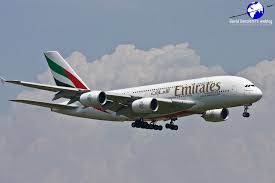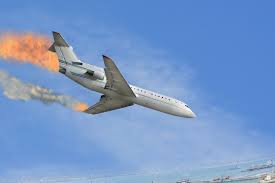周二聚會點 丹提咖啡 寶慶店 晚上7:00~9:30
台北市延平南路107號
(西門捷運站3號出口 往前走30公尺 向左看到全家便利商店巷進入 / 在中山堂對面)
連絡電話: 0976217450 Billy
說吧!英文讀書會 完全免費 練習英文 交流知識 交友談心的平台 我們歡迎 老朋友
新朋友 不設限 只要您想學英文 100%歡迎您 直接到聚會地點參加 地址在本會網頁上
只要您有熱誠 說一口流利英文不是問題
**(他會朋友們 感謝您欣賞 本會文章 all copy rights reserved by writers 請您有自己idea
勿搶先發表 造成本會困擾 謝謝合作)
© All copy rights reserved. Neither this material nor its presentation may be published, broadcast,
rewritten or redistributed.


服貿
Taiwan
Protesters Occupy Legislature Over China Trade Pact VOA News
Police and protesters have been engaged in a
standoff in Taiwan's legislature after students stormed the building to demand
the government scrap a trade deal with China.
The protesters Wednesday knocked down a large
metal gate as they entered the legislative chamber late Tuesday and were using
chairs to keep out police. Authorities
said several officers were slightly injured when they made a failed attempt to
clear the chamber.
The students said the deal would endanger
Taiwanese jobs and increase Beijing's growing influence.
Student organizer Shi Yilun told VOA that the
protesters felt the ruling Kuomintang, or KMT, party has bypassed the
democratic process.
“The
public hearings have not taken into consideration the voice of the people, the
voice of all parties, or the questions and challenges all sides have about the
Cross Strait Service Trade Agreement. On
the contrary, on February 17 (the KMT) did something that violated fundamental
democratic procedures and was without regard to the people of Taiwan. They
violated what we authorized them to do at that time. We’ve come here to take back our rights,”
said Shi.
The students are upset that a government
committee passed a review of the deal despite opposition protests.
KMT Policy Committee Chairman Lin Hong-chi told
reporters that the protesters were the ones damaging Taiwan's democracy.
“From
last night until the present moment, a portion of the populous has been misled
by a small number of people with ulterior motives into occupying the
Legislative Yuan. This has caused great
harm to Taiwan’s democracy. How sacred
are the halls of parliament. To trample
on a palace of democracy is to trample on parliament, which is the same as trampling
on the people,” said Lin.
Taiwan-China economic ties have been strong for
years. Political relations have also
grown warmer following historic high level talks last month.
Taiwan's opposition is worried about excessive
Chinese influence. The opposition has
vowed to vote against the trade deal, but does not have the strength to block
it.
Finance Minister Chang Sheng-ford said the deal
was too important for the island to pass up.
“The
Cross Strait Service Trade Agreement has a stake in the nation’s
prospects. Mainland China is such a big
market that if we don’t sign this agreement our competitiveness will drop. How will we join regional mechanisms in the
future? Everyone had better calmly
consider over [this], [we] must not be influenced by ideology," said
Chang. The trade deal is part of the far-reaching Economic Cooperation
Framework Agreement, or ECFA, signed between Taiwan and China in 2010.
Under the subdivision of the pact now under
discussion, Chinese and Taiwanese service companies would increase investments
in each other's territory.
Questions:
1. What do you think about students occupy
legislature over china trade pact?
What do you think about the cross strait
service trade agreement?
2. Do you think the economic cooperation
agreement is good for Taiwan and china?
Do you think the severe trade deal would
endanger Taiwanese jobs and increase?
Beijing’s growing influence?
3. What do you think about protesters in Taiwan?
4. Do you make enough money?
Are you satisfied with your current income?
5. Do you think the unemployment rate will
get worse?
What are the causes of unemployment?
6. How to create job opportunities?
7. How does tourism boost the national
economy?
8. How to build brighter future for Taiwan?


坐飛機安全嗎?
How
safe is commercial flight? anxieties.com
Dr. Arnold Barnett, of the Massachusetts
Institute of Technology, has done extensive research in the field of commercial
flight safety. He found that over the fifteen years between 1975 and 1994, the
death risk per flight was one in seven million. This statistic is the
probability that someone who randomly selected one of the airline's flights
over the 19-year study period would be killed in route. That means that any
time you board a flight on a major carrier in this country, your chance of
being in a fatal accident is one in seven million. It doesn't matter whether
you fly once every three years or every day of the year.
In fact, based on this incredible safety record,
if you did fly every day of your life, probability indicates that it would take
you nineteen thousand years before you would succumb to a fatal accident.
Nineteen thousand years!
Perhaps you have occasionally taken the train
for your travels, believing that it would be safer. Think again. Based on train
accidents over the past twenty years, your chances of dying on a
transcontinental train journey are one in a million. Those are great odds, mind
you. But flying coast-to-coast is ten times safer than making the trip by
train.
How about driving, our typical form of
transportation? There are approximately one hundred and thirty people killed
daily in auto accidents. That's every day -- yesterday, today and tomorrow. And
that's forty-seven thousand killed per year.
In 1990, five hundred million airline passengers
were transported an average distance of eight hundred miles, through more than
seven million takeoffs and landings, in all kinds of weather conditions, with a
loss of only thirty-nine lives. During that same year the National
Transportation Safety Board's report shows that over forty-six thousand people
were killed in auto accidents. A sold-out 727 jet would have to crash every day
of the week, with no survivors, to equal the highway deaths per year in this
country.
Dr. Barnett of MIT compared the chance of dying
from an airline accident versus a driving accident, after accounting for the
greater number of people who drive each day. Can you guess what he found? You
are nineteen times safer in a plane than in a car. Every single time you step
on a plane, no matter how many times you fly, you are nineteen times less
likely to die than in your car.
The Airline Deregulation Act of 1978 permitted
the airlines to be competitive both in the routes they flew and the fares they
charged. When the price of air travel decreased, the number who flew increased.
In 1977, two hundred and seventy million passengers flew on U.S. scheduled
airlines. In 1987 four hundred and fifty million flew. For passengers, that
resulted in the frustration of crowded terminals and delayed boardings and
takeoffs. But did deregulation cause safety to be compromised? Definitely not!
Accident statistics provided by the National
Transportation Safety Board show that -- despite a fifty percent increase in passengers
during the ten years after deregulation -- there was a forty percent decrease
in the number of fatal accidents and a twenty-five percent decrease in the
number of fatalities, compared to the ten years before deregulation.
Questions:
1. How safe is commercial flight?
Do you consider that flight safety and
airline accident record before flying?
3. How often do you take an airplane?
Are you fear of flying? How to overcome a
fear of flying?
4. What do you think that “the death risk
per flight was one in seven million?”
5. How to survive a plane crash? Which is
the safest seat on an aircraft?
How to prepare for a plane crash, if you
were one of the passengers?
6. What do you think about the missing Malaysia
airlines flight?
What are the causes of airplane crash?
7. In your opinion, what kind of public
transportation would be safer?
Compare the chances of dying on a trans,
cars and airplanes?
8. Do you buy insurance before take an
airplane?


















0 意見:
張貼留言